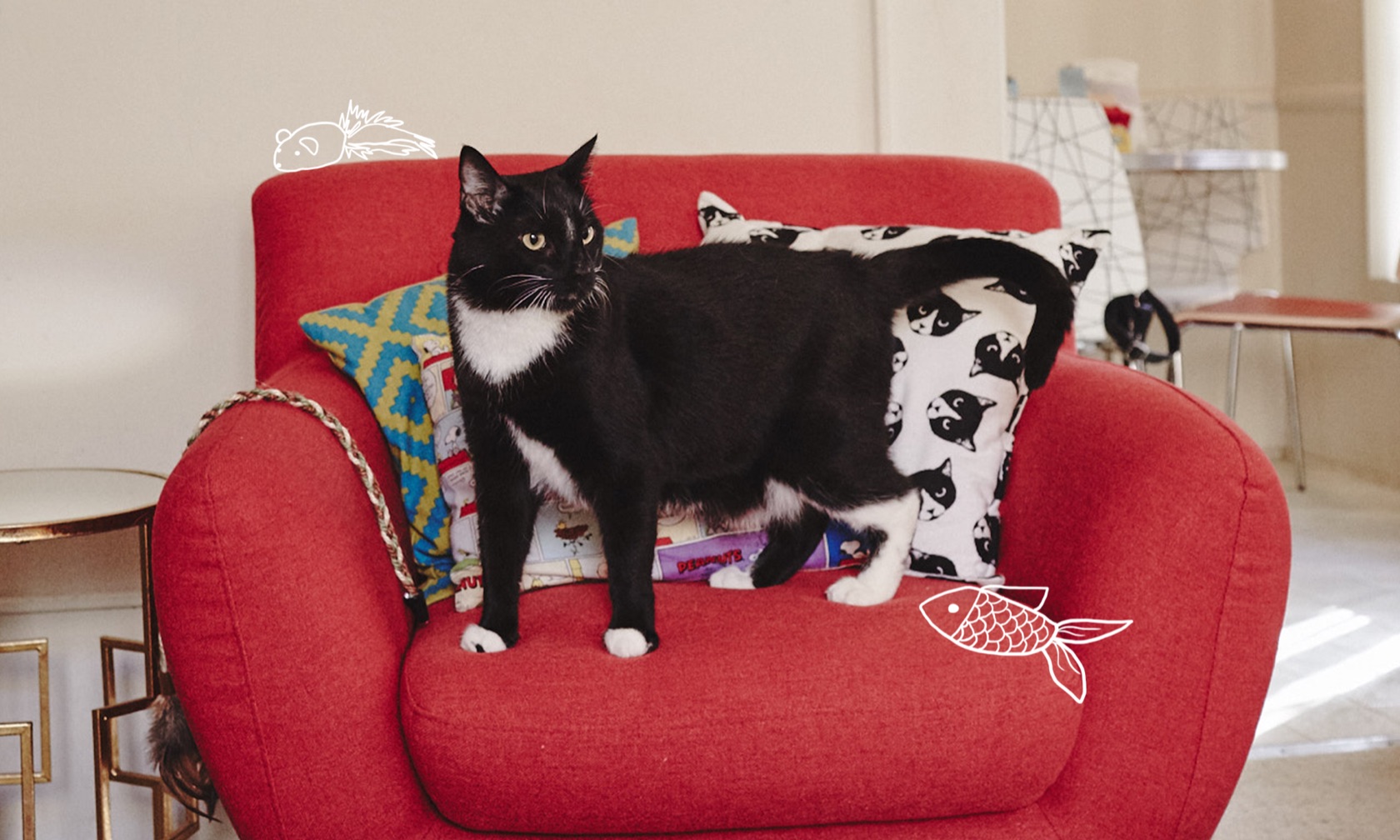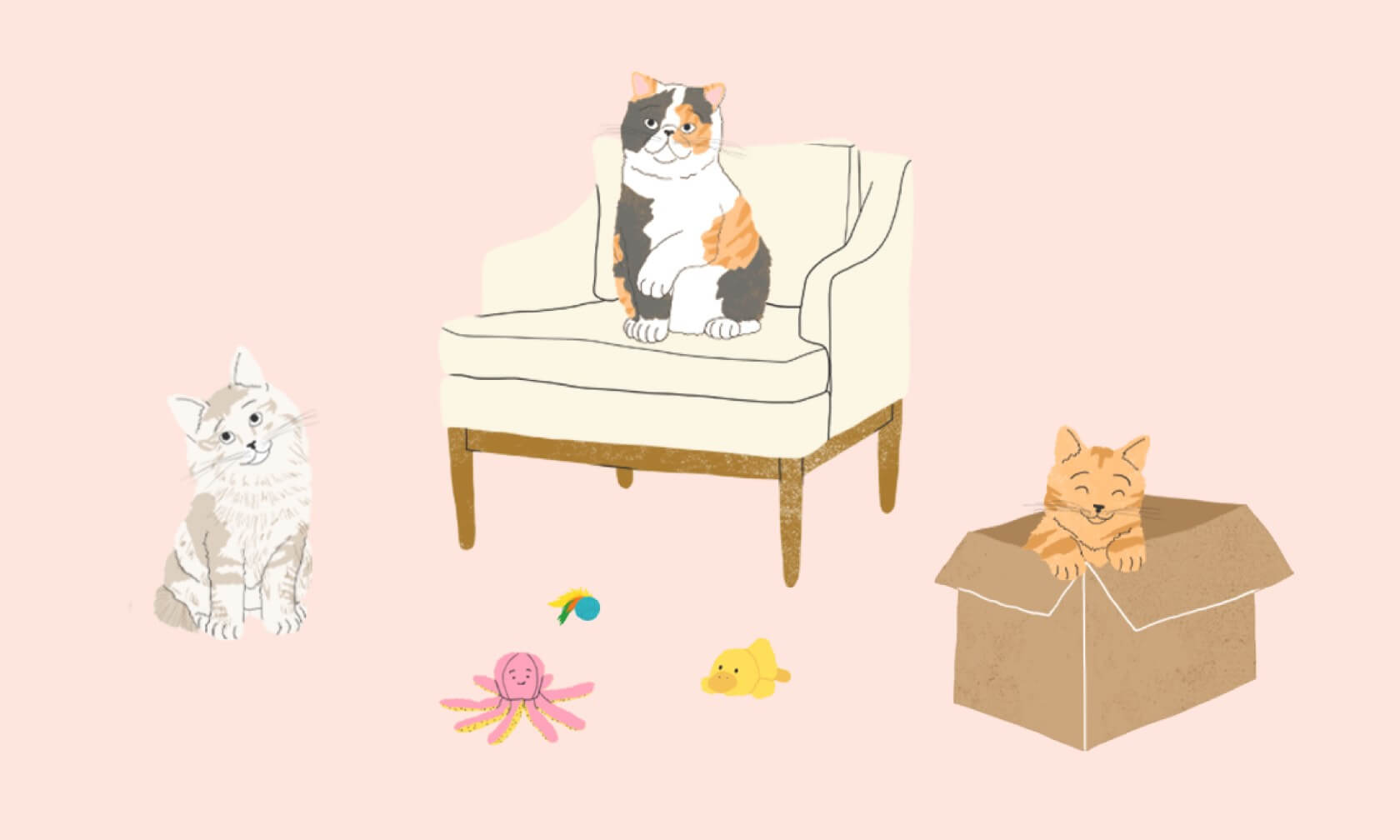Preparing your home for your new cat’s arrival is much more than buying a litter box and a few treats. Even the simplest household objects can cause danger to your new furry friend. To ensure your cat’s safety and health, you’ll want to learn how to recognize your cat's normal behavior, and cat-proof each and every room. Here are some tips on cat-proofing your home, room by room.
Cat-Proofing Your Living Room
- Tie up or Cut Blind Cords and Loops
Cats can get injured or even strangle themselves in blind cords. Opt for window treatments without looped cords or cut the loop altogether to prevent problems. - Keep Candles up High
Curious cats shouldn’t be around flames. Flameless candles offer all the ambiance without being a hazard to whiskers and tails. - Cover up Electric Cords
Chewing is a common cat hobby, so don’t let them nibble on electrical cords, cables, or phone chargers. The result can be worse than just shocking! - Use Essential Oils and Potpourri With Care
Some essential oils—on their own or in liquid potpourri—can be toxic to your cat. Do your research before using around your cat. - Watch Out for Poisonous Plants and Flowers
Lilies, sago palms, and cyclamen are just a few plants that can cause serious problems for your cat. Talk to your veterinarian before bringing any new flowers or plants home.
Cat-Proofing Your Bedroom or Home Office
- Keep Your Nightstands Clear
Keep medications, rubber bands, needle and thread, and other hazards off easy-to-reach nightstands. - Hide Mothballs in a Drawer and off the Floor
Mothballs are toxic for cats when eaten or sniffed. - Power Down Your Paper Shredder
Be sure to keep kitty tails and paws far away from these sharp blades! Never leave your shredder on “auto” or “standby”—flick the switch to “off” or unplug when not in use.
Cat-Proofing Your Kitchen
- Close Your Cupboards and Pantry Doors
Stash cleaners, chemicals, trash, and both pet and people food behind closed doors—and consider putting child-proof locks on accessible cabinet doors. - Keep Your Trash, Recycling, and Compost Covered
Cats can suffocate in food bags, get sick from compost, and suffer from a lot of other problems when they get into what we throw away. - Keep Your Stovetop Covered
Your cat is in for a painful landing if they try to jump onto a stovetop in use, or even a recently turned off burner. Try to keep your cats from jumping up, and use burner covers on hot burners.

Cat-Proofing Your Bathroom
- Cover up Your Wastebaskets
Unlike humans, cats love dental floss and other string-like objects, all of which can cause serious digestive obstruction. - Put Away Medications and Supplements
The top cat poisoners are over-the-counter and prescription medications, as well as natural supplements. - Keep the Toilet Seat Lids Down
Curious cats, especially kittens, could fall in. Be careful not to leave toilet bowl cleaners sit in the bowl, and don’t use automatic toilet bowl cleaners or cakes.
Cat-Proofing Your Laundry Room, Garage, and Shed
- Keep Your Clothes Dryer Closed (and Always Check Inside Before Use)
A toasty dryer seems like a comfy place to sleep for cats—but it can be fatal if it’s turned on with them inside. - Hide Garage Chemicals
Automotive chemicals like motor oils, windshield fluid, and antifreeze can be harmful to your cat. Even a couple licks of antifreeze can kill, so stash it away. - Put Away Rock Salt and Ice Melters
Many salt-based ice melts can cause tummy troubles or burn sensitive paws. Use “pet-safer” ice melt products instead.
ZPC-00180R1



